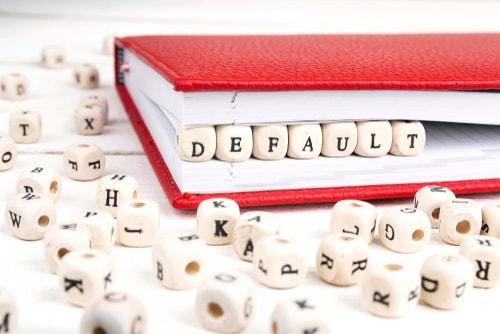1512 Artaius Parkway, Suite 300,
Libertyville, IL 60048
Call for a FREE Phone Consultation
847-549-0000
Video Consultations Also Available
 Spanish
SpanishServing Clients Across 7 Illinois Locations
What Is a Strategic Default on a Residential Mortgage?
 If you financed the purchase of your home with a mortgage loan, you probably signed what seemed to be mountains of paperwork. Buried in each document and hidden in confusing language were the terms and conditions of your loan and what would happen if you failed to make the required payments. Off the top of your head, you might not be able to recall all of the specific details, but you probably realize that if you do not keep up with your mortgage, the loan will go into default. If you stay in default for long enough, the lender will initiate foreclosure proceedings and eventually take your home.
If you financed the purchase of your home with a mortgage loan, you probably signed what seemed to be mountains of paperwork. Buried in each document and hidden in confusing language were the terms and conditions of your loan and what would happen if you failed to make the required payments. Off the top of your head, you might not be able to recall all of the specific details, but you probably realize that if you do not keep up with your mortgage, the loan will go into default. If you stay in default for long enough, the lender will initiate foreclosure proceedings and eventually take your home.
With this in mind, it would seem that defaulting on your mortgage is something that should be avoided at all costs. In some situations, however, a strategic default could help you find a way out of a difficult situation.
Understanding Strategic Default
By definition, a strategic default occurs when a borrower intentionally allows his or her mortgage to default despite having the money to make the payments. The terms “strategic default” and “strategic foreclosure” are often used interchangeably, but they are not really the same thing. It is possible for a person who decides to use a strategic default to completely walk away from the property and allow the bank to foreclose, but not every strategic default ends in foreclosure.
A strategic default is usually considered only when the borrower is “upside-down” or “underwater” on his or her mortgage. Both of these terms mean that the borrower owes more on the mortgage than what the home is currently worth. A borrower in such a position might feel that he or she is throwing money away by continuing to pay on an investment that will never generate a return.
When the Bank Will Not Help
Most mortgage lenders have a variety of programs and options available to borrowers who are struggling to make their mortgage payments. The catch, however, is that many financial institutions will not even consider solutions like a short sale or a deed in lieu of foreclosure deal unless the mortgage is behind enough to be in default. In most cases, a mortgage is deemed to be in default after two to three months of missed payments. This is where a strategic default could be an effective strategy.
Some people believe that the intentional failure to honor contractual obligations—including a strategic default—is an immoral act. However, it is also worth considering the bigger picture. A person who chooses strategic default is usually looking to provide a better situation for his or her family. A strategic default is also not without consequences. Defaulting on a mortgage will have a negative impact on the borrower’s credit rating, and it will be harder for the borrower to obtain a loan in the future.
Call a Libertyville Foreclosure Defense Attorney
If you are currently underwater on your mortgage, an experienced Lake County foreclosure attorney can help you explore all of your options for taking action, including the pros and cons of strategic default. Call 847-549-0000 to schedule a free phone consultation with the skilled team at Newland & Newland, L.L.P. today.
Sources:
https://www.investopedia.com/terms/s/strategic-default.asp
https://homeguides.sfgate.com/long-stay-house-dont-pay-mortgage-58822.html
 Stop Foreclosure
Stop Foreclosure
















